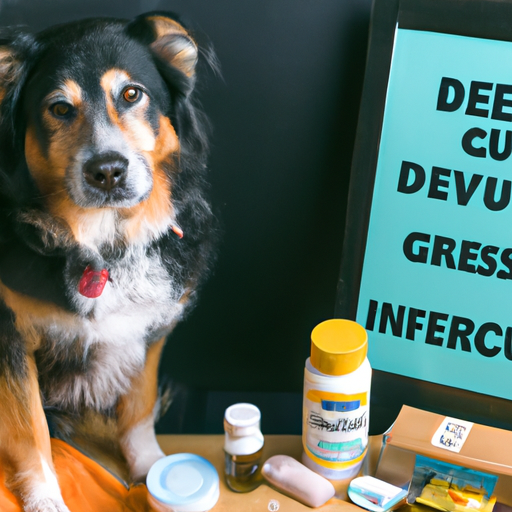When your loyal companion starts showing signs of discomfort, you feel helpless. You’re not alone. Many dog owners experience the same worry when their pets show signs of gastrointestinal (GI) distress. This article will guide you on how to cure GI distress in dogs, helping you restore your dog’s health and happiness.
Table of Contents
- Understanding GI Distress in Dogs
- Symptoms of GI Distress
- Causes of GI Distress
- Treating GI Distress at Home
- When to Consult a Vet
- Frequently Asked Questions
Key Takeaways
- GI distress in dogs can be caused by various factors, including diet changes, ingestion of foreign objects, or underlying health issues.
- Symptoms may range from vomiting and diarrhea to loss of appetite and lethargy.
- Mild GI distress can often be managed at home, but severe or persistent symptoms require veterinary attention.
- Regular veterinary check-ups can help prevent GI distress and other health problems.
Understanding GI Distress in Dogs
Gastrointestinal distress is a common condition affecting dogs. It refers to problems occurring in your dog’s stomach and intestines, which can lead to symptoms like vomiting, diarrhea, and discomfort. The good news is that understanding the causes and symptoms of GI distress can help you take steps to relieve your pet’s discomfort.
Symptoms of GI Distress
Every dog can have different symptoms, but the most common signs of GI distress include:
- Vomiting
- Diarrhea
- Loss of appetite
- Lethargy
- Abdominal pain or bloating
- Excessive gas
If you notice any of these symptoms, it’s crucial to monitor your pet closely and take appropriate action. Early intervention can help your dog recover quickly and avoid further complications.
Causes of GI Distress
GI distress can be caused by a variety of factors. A sudden change in diet, ingestion of foreign objects, bacterial or viral infections, and certain medications can all trigger GI distress. Additionally, some dogs may suffer from GI distress due to underlying health conditions like pancreatitis, liver disease, or certain types of cancer.
One of our previous articles on Canine Dietary Needs provides more insights into how diet can impact your dog’s digestive health.
Treating GI Distress at Home
Mild cases of GI distress can often be managed at home. Here are some steps you can take:
- Fasting: Allow your dog’s stomach to rest by withholding food for 12-24 hours. However, ensure your dog has access to plenty of fresh water to prevent dehydration.
- Dietary changes: After the fasting period, reintroduce food slowly. Start with bland, easily digestible foods like boiled chicken and rice.
- Hydration: Dehydration can occur due to vomiting and diarrhea. Encourage your dog to drink water. In severe cases, electrolyte solutions can also be beneficial.
- Probiotics: These can help restore the healthy bacteria in your dog’s gut, aiding digestion and recovery.
Remember, these methods are only suitable for mild cases of GI distress. If your dog’s symptoms persist or worsen, it’s time to consult a vet.
When to Consult a Vet
It’s essential to understand when home remedies aren’t enough. If your dog’s symptoms persist for more than 24 hours, or if they become severe, it’s time to get professional help.
Also, watch for warning signs like blood in your dog’s stool or vomit, extreme lethargy, or a distended abdomen. These symptoms could signal a serious condition, like pancreatitis or a gastrointestinal obstruction, which require immediate veterinary attention.
Our article on Recognizing Emergency Situations in Dogs offers more information on when to seek immediate help.
Frequently Asked Questions
Q: How can I prevent GI distress in my dog?
A: Regular vet check-ups, a balanced diet, and preventing your dog from eating foreign objects can help prevent GI distress.
Q: How long does GI distress last in dogs?
A: Mild cases may resolve within 24 hours. However, severe or persistent symptoms require veterinary attention.
Q: Can GI distress be a sign of serious illness?
A: While often due to dietary factors, GI distress can also be a symptom of serious conditions such as pancreatitis or liver disease.
For more information on dog health and care, visit us at OneTopDog. Our Dog Health Guide is a great resource for understanding and managing common health issues in dogs.
Remember, GI distress can be uncomfortable for your dog and worrying for you. But with the right knowledge and care, you can help your furry friend feel better soon.



